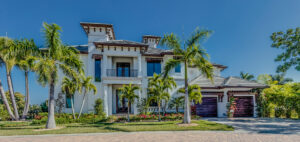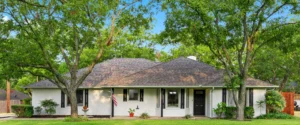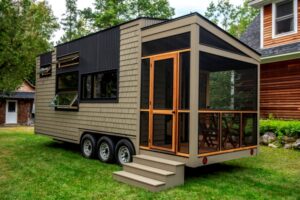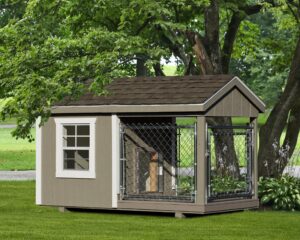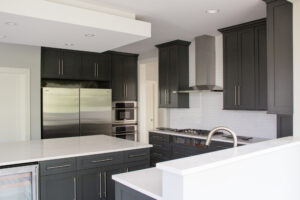Boston, Massachusetts Mansions: A Glimpse Into History, Luxury, and Elegance
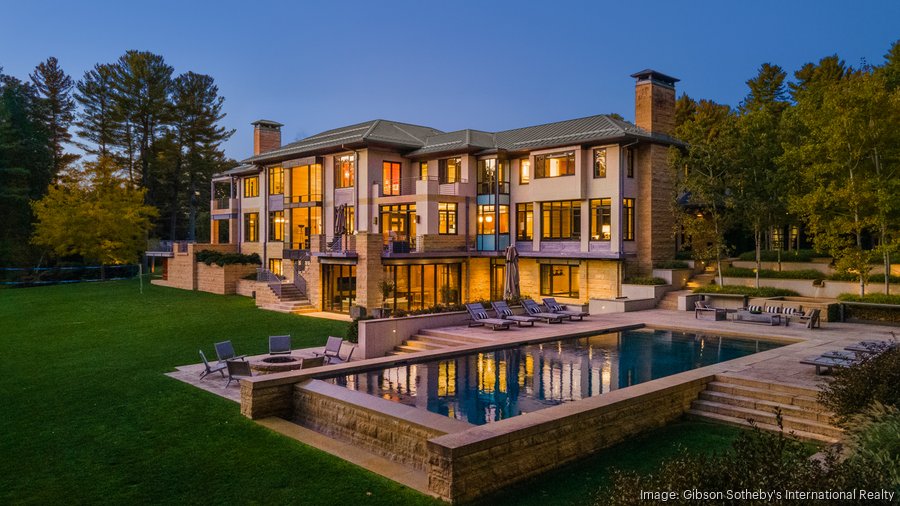
On a quiet autumn morning in Boston, Massachusetts, the golden leaves crunch beneath your feet as you stroll down the cobblestone streets of Beacon Hill. Flanking the narrow roads are stately mansions, their brick facades adorned with wrought-iron balconies and intricate gas lanterns flickering softly against the early sunlight. Each home tells a story, a chapter in Boston’s storied history, from the days of the American Revolution to the height of Gilded Age opulence. These mansions are more than architectural marvels—they’re living testaments to the city’s rich legacy, home to generations of influential families, and now symbols of Boston’s thriving luxury real estate market.
Boston, known as the “Cradle of Liberty,” is often celebrated for its historical landmarks, world-class universities, and deep-rooted cultural heritage. But beyond the bustling streets of its financial district lies a world of grandeur: the city’s iconic mansions. From the historic homes of Back Bay to the sprawling estates of Chestnut Hill, Boston mansions reflect the city’s storied past and its modern-day affluence. In this article, we’ll explore the world of boston massachusetts mansions, delving into their history, architectural splendour, real estate trends, and the lifestyle they represent.
A History of Boston Mansions: Where Legacy Meets Luxury
Boston’s mansions are steeped in history, many dating back to the 18th and 19th centuries. These homes were built during pivotal moments in the city’s evolution—from the colonial era to the industrial boom—showcasing both historical significance and architectural mastery.
Beacon Hill: Colonial-Era Grandeur
Beacon Hill, one of Boston’s most iconic neighbourhoods, is home to some of the city’s oldest mansions. Built in the Federal and Greek Revival styles, these homes were constructed for Boston’s elite families, including merchants, politicians, and industrialists. Notable mansions include:
- The Otis House (1796): Designed by architect Charles Bulfinch, this Federal-style mansion is now a museum managed by Historic New England. It showcases life in early Boston.
- The Nichols House (1804): A refined mansion featuring period-appropriate furnishings and art reflecting Beacon Hill’s historic charm.
Back Bay: The Gilded Age of Mansions
In the mid-19th century, Boston underwent an ambitious land reclamation project that turned the tidal marshes of Back Bay into a planned grid of elegant streets. By the late 1800s, Back Bay had become the epicentre of wealth and style, with row after row of Victorian brownstone mansions. The neighbourhood’s Commonwealth Avenue is often compared to New York’s Fifth Avenue, and its homes boast some of the finest architecture in the city.
One standout is the Gibson House Museum, a Victorian-era mansion preserved as a snapshot of Boston’s Gilded Age luxury. The brownstones along Marlborough Street and Beacon Street, many of which were built for the city’s wealthiest families, are prime examples of this era’s opulence.
Chestnut Hill: Suburban Splendor
Just outside Boston, Chestnut Hill offers sprawling estates that rival the mansions of Beacon Hill and Back Bay. Known for its rolling hills and lush landscapes, Chestnut Hill attracted industrial titans in the late 19th and early 20th centuries, who built expansive homes surrounded by acres of private land. Today, the neighbourhood remains a haven for those seeking privacy and luxury close to the city.
The Current Market for Boston Mansions
The Boston luxury real estate market has been thriving, driven by a combination of historical charm, modern amenities, and proximity to some of the country’s best schools, hospitals, and cultural institutions.
Market Trends
According to a 2023 report by Coldwell Banker, sales of luxury homes priced over $3 million in the Boston area increased by 8% year over year despite broader concerns about rising interest rates. Boston mansions continue to attract wealthy buyers for their historical significance and prime locations.
- The average price per square foot for luxury properties in Boston is approximately $1,300, with Back Bay and Beacon Hill commanding even higher rates.
- In Chestnut Hill, the average price for a mansion is $5 million, though some estates exceed $10 million depending on size, location, and amenities.
High-Profile Sales
In 2022, a historic Beacon Hill mansion on Louisburg Square—known for its exclusivity and charm—sold for $15.8 million, setting a record for the neighbourhood. Similarly, a 10,000-square-foot estate in Chestnut Hill fetched $11.5 million, underscoring the growing demand for suburban luxury.
Boston’s Iconic Neighborhoods for Mansions
- Beacon Hill: Timeless Elegance
Beacon Hill is the crown jewel of Boston’s historic neighbourhoods. In style, mansions here are typically Federal or Greek Revival, with intricate brickwork, elegant stoops, and private courtyards. With cobblestone streets and gas-lit lanterns, Beacon Hill offers a sense of timelessness that appeals to history enthusiasts and luxury buyers alike.
Notable features of Beacon Hill mansions include:
- Stunning city views from rooftops and upper floors.
- Proximity to Boston Common and the Public Garden.
- Interiors featuring period details like marble fireplaces and hand-carved mouldings.
- Back Bay: Urban Luxury
Back Bay is synonymous with sophistication. Its iconic brownstone mansions, often converted into multi-million-dollar townhomes, line Commonwealth Avenue, Marlborough Street, and Beacon Street. Buyers are drawn to Back Bay for its:
- Access to high-end shopping on Newbury Street.
- Proximity to cultural landmarks like the Boston Public Library and Symphony Hall.
- Victorian architecture combined with modern interiors, including home gyms, elevators, and wine cellars.
- Chestnut Hill: Suburban Privacy
For those who value space and privacy, Chestnut Hill offers sprawling estates surrounded by greenery. Many homes feature:
- Gated entrances and long driveways.
- Tennis courts, swimming pools, and manicured gardens.
- Proximity to Boston College and The Street Chestnut Hill, a luxury shopping centre.
Features That Define Boston Mansions
Boston mansions are known for their blend of historic charm and modern upgrades. Here are some features that make these homes stand out:
- Architectural Heritage
Many Boston mansions are listed on the National Register of Historic Places, making them architectural treasures. From intricate cornices to stained-glass windows, these homes are rich in detail and reflect the craftsmanship of their era.
- Modern Amenities
Most Boston mansions have been meticulously updated despite their age to meet modern standards. Buyers can expect:
- Gourmet kitchens with top-of-the-line appliances.
- Spa-inspired bathrooms with heated floors and soaking tubs.
- Smart home technology integrated into lighting, security, and climate control.
- Outdoor Spaces
While Boston’s urban mansions typically feature private courtyards or rooftop terraces, Chestnut Hill and Newton suburban estates offer expansive lawns, gardens, and even private forests.
The Investment Appeal of Boston Mansions
- Steady Appreciation
Boston’s luxury real estate market has shown consistent growth over the years. According to a 2023 study by Zillow, historic properties in Boston appreciate at an annual rate of 4.7%, outperforming the national average for luxury homes.
- Cultural Significance
Owning a Boston mansion is not just about luxury—it’s about being part of a city with deep historical and cultural roots. Homes in neighbourhoods like Beacon Hill and Back Bay are often featured in films, literature, and tourism campaigns, adding to their prestige.
- Proximity to World-Class Amenities
Boston mansions offer unparalleled access to top-tier schools (Harvard, MIT), renowned hospitals (Mass General), and vibrant cultural institutions, making them highly desirable for affluent families and international buyers.
Challenges of Owning a Boston Mansion
While the allure of a Boston mansion is undeniable, ownership comes with challenges:
- Maintenance Costs: Maintaining historic homes can be expensive, with restoration costs for original features like windows or chimneys running into the tens of thousands of dollars.
- Property Taxes: With high valuations, property taxes can exceed $100,000 annually for some mansions.
- Preservation Restrictions: Homes listed on the National Register or in historic districts may be subject to strict guidelines that limit renovations or alterations.
Conclusion: Boston Mansions as Timeless Investments
Boston’s mansions are more than just luxury properties—they’re pieces of history and art and a testament to the city’s enduring appeal. Whether you’re drawn to the cobblestone charm of Beacon Hill, the Victorian splendour of Back Bay, or the peaceful estates of Chestnut Hill, these homes represent the pinnacle of Boston’s real estate market.
For those lucky enough to own one, a Boston mansion offers a home and a legacy—a connection to the city’s rich past and promising future.

